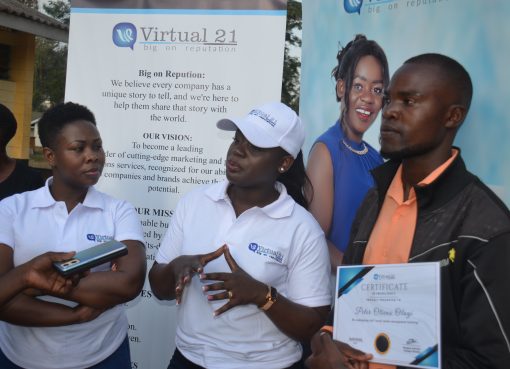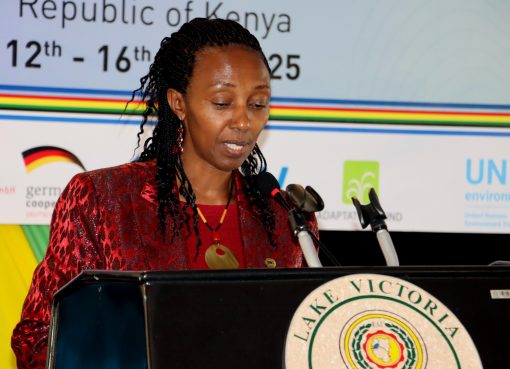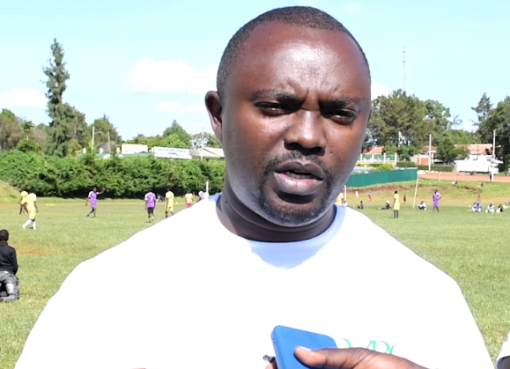The government will, starting January 2025, construct 2,600 laboratories in secondary schools in preparation for the transition of the pioneer cohort of Senior School learners under the Competence Based Curriculum.
State Department for Basic Education Principal Secretary Dr Belio Kipsang says the government will construct 1,600 physical laboratories in secondary schools that do not currently have a lab.
The PS says that there are also plans to leverage on technology where the State will set up 2,000 virtual laboratories to facilitate the learning of Science, Technology, Engineering and Mathematics (STEM) once the Junior Secondary School learners join Grade 10 in 2026.
“We have committed ourselves that by the time the first cohort of CBC Grade 8 goes to Senior School in Grade 10, every school will have at least one lab. Starting January next year, we are going to do 1,600 labs in our current secondary schools which will be our senior schools in January 2026,” said the PS.
“We are also going to do some 2,000 virtual labs so that we shall have both physical labs that our children can have the opportunity to touch and appreciate what is in a lab while also building on virtual labs which are now the direction we are going in by leveraging on technology,” added the PS.
The labs are part of the systems and structures that the PS said that the government is putting in place to ensure that CBC is properly anchored and implemented.
While giving a status report on the state of preparedness for implementation of the final transition of Basic Education Framework, the PS said that the Ministry of Education has already developed Draft Guidelines for Grade 10 placement in pathways.
Upon writing the Kenya Junior School Education Assessment in Grade 9 next year, the learners will be placed in three pathways of either STEM for those who will excel in mathematics and sciences, Social Sciences or Arts and Sports.
Dr Kipsang says that the government is planning to accord all the learners an opportunity to pursue STEM as they prepare to join other skill based institutions.
“It is not as straight as it was when we were taking our children to Form 1 using their marks. The dynamics will be different. This time, it goes beyond marks, it is about the pathway that the child would want to take,” he said.
Further, Dr Kipsang said that the Ministry had also come up with Draft Institution Management Guidelines which will inform how Senior Secondary Schools will be managed.
Terming the current heads of secondary schools as critical stakeholders in the implementation of the curriculum, the PS said that the Ministry will be bringing them on board to chart the way forward on the best management model for Senior Secondary Schools.
“We are now preparing for the final transition within the Basic Education framework from Grade 9 to Grade 10. This is a critical time to start discussing how we are going to manage that transition and deal with the Senior Schools,” he stated.
“We are putting ourselves in perspective and in preparation, we have already done draft guidelines on management of Senior Schools. Once the Kenya Certificate of Secondary Education exams are done we shall have consultations with the heads of school as our critical stakeholders so that we can go through these guidelines and firm them up in preparation for Grade 10,” added Dr Kipsang.
To address the teacher shortage, the PS said that the Ministry is building the capacity of teachers to help them implement the new curriculum. Further, Dr Kipsang stated that the Ministry is collaborating with the Teachers Service Commission to recruit additional teachers to teach in JSS.
According to Dr Kipsang, the Ministry is targeting to have more than 90,000 teachers in the Junior Secondary framework by January 2024.On the overall, the PS said, they are working towards having 120,000 teachers in the Junior Secondary school.
“We are working closely with TSC on issues of teacher recruitment. We are also doing appraisal of our existing teachers in Primary Schools who can be upgraded to teach at JS level. Within the next one year we should have been able to build the capacity of our teachers to reach the level that we require,” stated Dr Kipsang.
The PS spoke in Giakanja Primary School in Nyeri County after inspecting the progress of construction of Grade 9 classrooms. During the inspection tour the PS confirmed that text books and other learning material for Grade 9 learners had already been delivered to the schools where each student will receive a text book for each of the nine learning areas.
“We are distributing the Grade 9 textbooks on a ratio of 1:1 on the 9 learning areas so each child will have a book,” stated the PS.
By Wangari Mwangi




